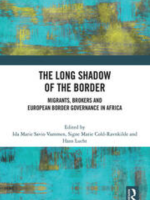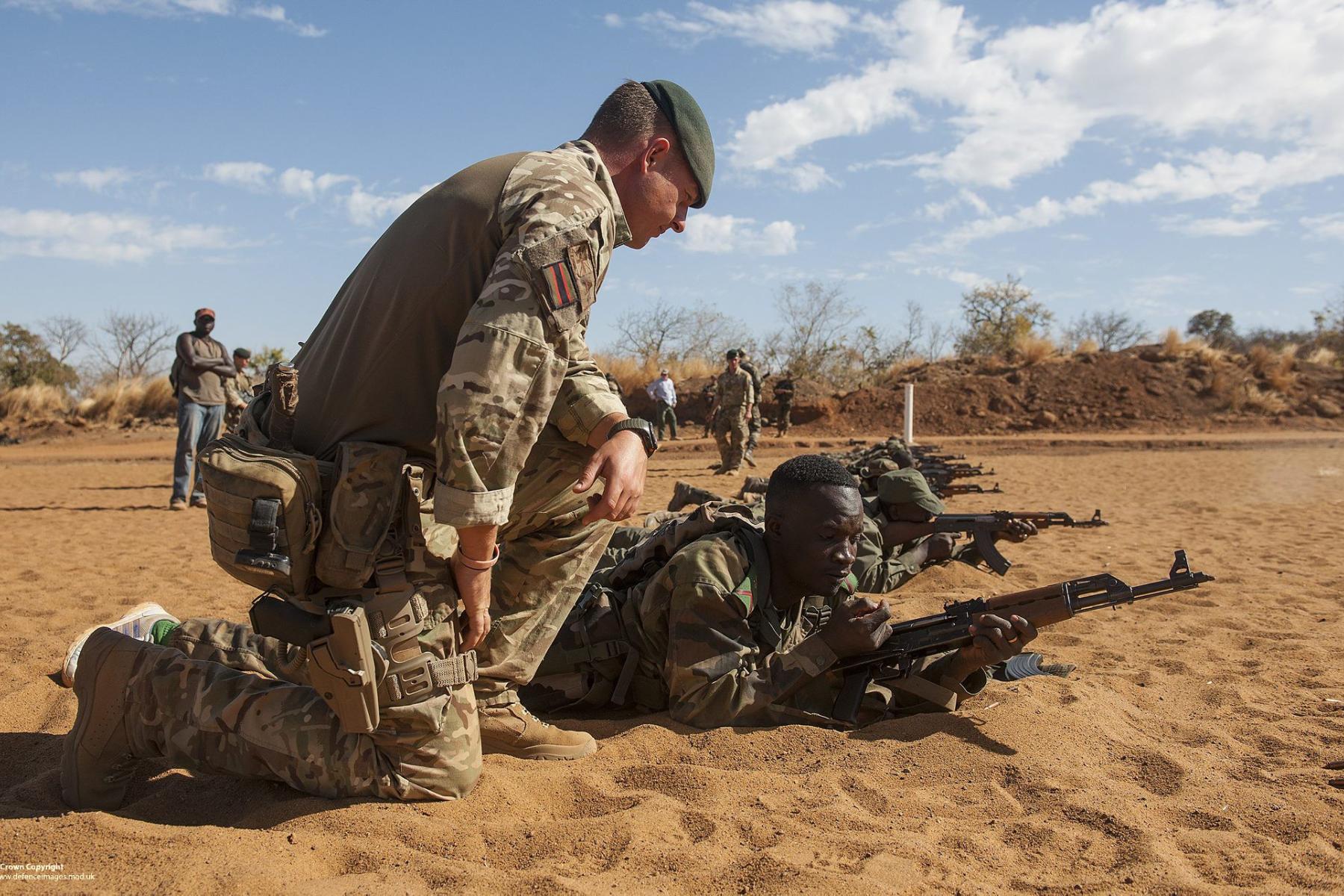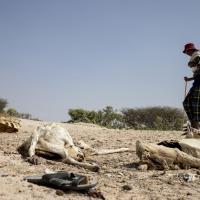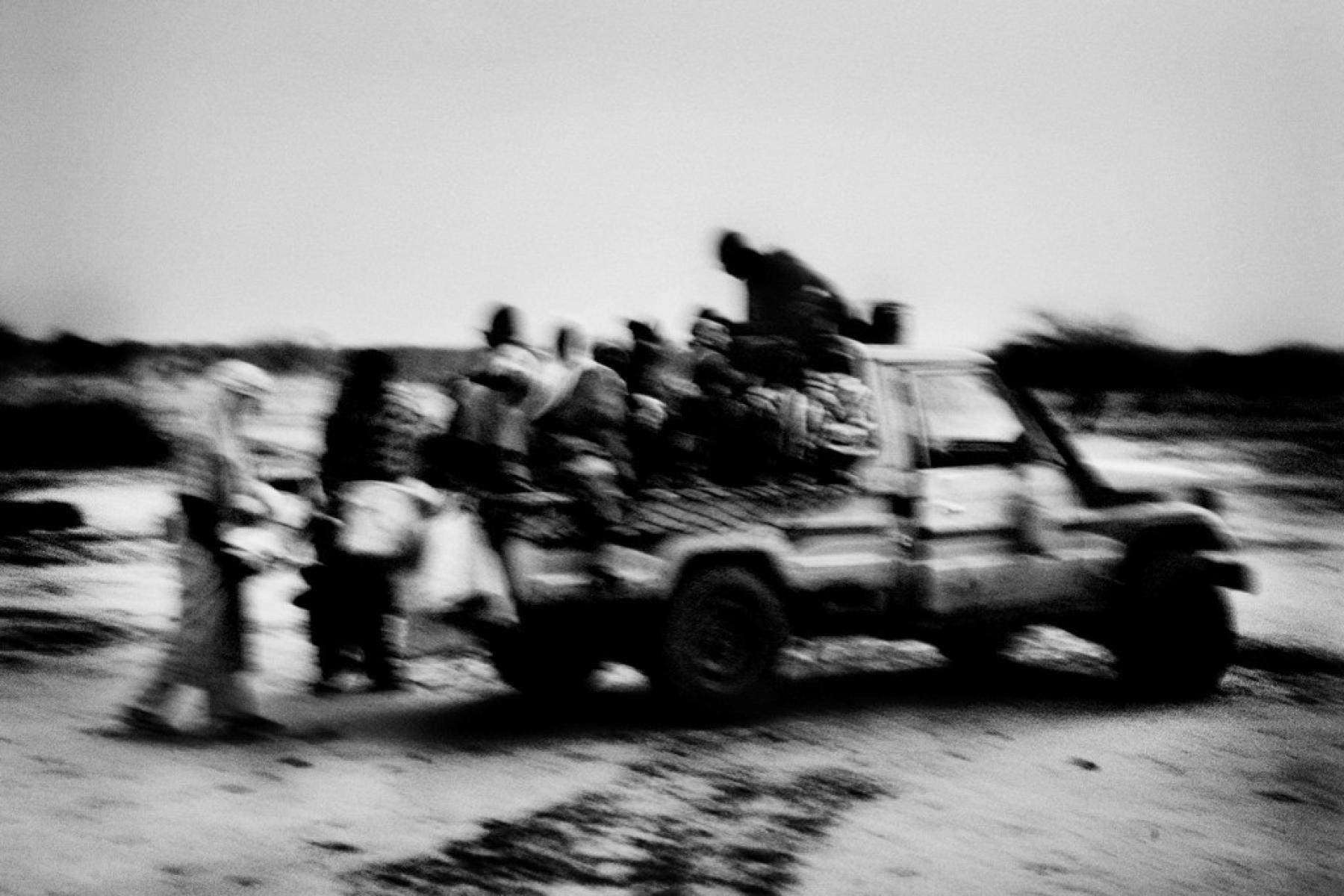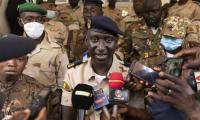Signe Marie Cold-Ravnkilde
Primary research areas
Signe Marie Cold-Ravnkilde’s primary areas of research are security, migration, and development in Africa. In particular, she focuses on conflict, terror, and peacebuilding as well as on international interventions (including the UN, the EU and Western intervening states) in West Africa’s Sahel-region.
Current research
Signe Marie Cold-Ravnkilde’s research centres on how politics of security, migration, and development emerge as well as how they are negotiated and implemented. Her research builds on ethnographic fieldwork in Mali, Niger, and South Africa and her latest research project focuses on how EU’s externalization of border control is negotiated locally and nationally in West Africa.
Her thematic interests cover transnational security governance in the Sahel-region and in her research, she explores how local resource conflicts link to processes of state formation and jihadist insurgency. Signe Marie Cold-Ravnkilde is furthermore interested in the question of how different intervention practices influence the global distribution of inequality and security/insecurity along the lines of gender and race. How are they negotiated and contested at different levels of intervention? What are their intended and unintended effects? And how do local conflict dynamics transform and diffuse in the era of globalization?
Geographically, her research takes point of departure in Africa, particularly Mali, Niger, and South Africa. Moreover, she focuses on Western intervening states and organizations, including NGOs, the UN, and the EU.
Projects
Signe Marie Cold-Ravnkilde is part of the collaborative research program: Borderwork - Migrants, Brokers and European Border Governance in West Africa, funded by FKK. Focusing on West Africa, this research project examines the human, social, and political consequences of Europe’s border externalization.
The project asserts that the expanded borders create social and political spaces that may cause suffering but also are worlds where new actors and new opportunities arise. Based on three ethnographic fieldworks in West Africa – Senegal, Mali and Niger – the project examines the ongoing struggle over mobility.
Additionally, Signe Marie Cold-Ravnkilde is part of the research project, TRANSJIHAD, a five-year project which aims at advancing our understanding of the dynamics of transnational jihadism with a specific focus on Al-Qaeda and Islamic State – two movements that operate transnationally – as well as on Boko Haram and Taliban. The research project explores the questions of how jihadist conflicts become transnational and under which circumstances they can be contained. Through a comparative examination, the project has its geographical focus on jihadist conflicts across Asia, the Middle East, the Arab Peninsula, and Africa and seeks to combine micro- and macro level approaches to jihadism.
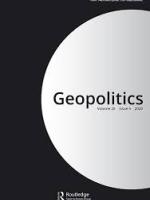
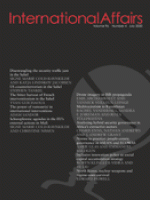


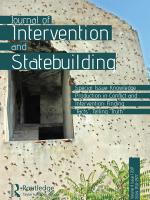
Research and activites
-
Book2023Migrants, brokers and European border governance in AfricaIda Marie Savio Vammen, Signe Marie Cold-Ravnkilde & Hans Lucht
-
 Photo/illustration by Pexels. Jens Mahnke. copyright licenseWeb Article2022Ida Marie Savio Vammen, Signe Marie Cold-Ravnkilde & Hans Lucht
Photo/illustration by Pexels. Jens Mahnke. copyright licenseWeb Article2022Ida Marie Savio Vammen, Signe Marie Cold-Ravnkilde & Hans Lucht -
Web Article2022Ida Marie Savio Vammen, Signe Marie Cold-Ravnkilde & Alice Troy-Donovan
-
Web Article2022Signe Marie Cold-Ravnkilde
-
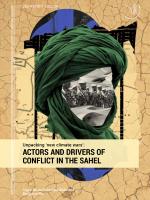 DIIS Report2022Unpacking 'new climate wars'Signe Marie Cold-Ravnkilde & Boubacar Ba
DIIS Report2022Unpacking 'new climate wars'Signe Marie Cold-Ravnkilde & Boubacar Ba -
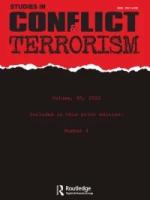 Journal Article2022Signe Marie Cold-Ravnkilde & Boubacar Ba
Journal Article2022Signe Marie Cold-Ravnkilde & Boubacar Ba -
 Photo/illustration by Göran Höglund (Kartläsarn) via Flickr.com copyright licenseJournal Article2021The Anti-politics of Deportation from North Africa to MaliAlmamy Sylla & Signe Marie Cold-Ravnkilde
Photo/illustration by Göran Höglund (Kartläsarn) via Flickr.com copyright licenseJournal Article2021The Anti-politics of Deportation from North Africa to MaliAlmamy Sylla & Signe Marie Cold-Ravnkilde -
 Journal Article2021Ida Marie Savio Vammen, Signe Marie Cold-Ravnkilde & Hans Lucht
Journal Article2021Ida Marie Savio Vammen, Signe Marie Cold-Ravnkilde & Hans Lucht -
 Journal Article2021Everyday Resistance within European Border Control Initiatives in MaliSigne Marie Cold-Ravnkilde
Journal Article2021Everyday Resistance within European Border Control Initiatives in MaliSigne Marie Cold-Ravnkilde -
 Journal Article2020Signe Marie Cold-Ravnkilde & Christine Nissen
Journal Article2020Signe Marie Cold-Ravnkilde & Christine Nissen -
 Journal Article2020constitutive effects of contemporary interventionismSigne Marie Cold-Ravnkilde & Katja Lindskov Jacobsen
Journal Article2020constitutive effects of contemporary interventionismSigne Marie Cold-Ravnkilde & Katja Lindskov Jacobsen -
 Journal Article2020Peacekeeping in Somalia and MaliPeter Albrecht & Signe Marie Cold-Ravnkilde
Journal Article2020Peacekeeping in Somalia and MaliPeter Albrecht & Signe Marie Cold-Ravnkilde -
Book2020Signe Marie Cold-Ravnkilde
-
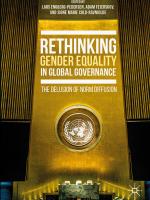 Book2019The Delusion of Norm DiffusionLars Engberg-Pedersen, Adam Moe Fejerskov & Signe Marie Cold-Ravnkilde
Book2019The Delusion of Norm DiffusionLars Engberg-Pedersen, Adam Moe Fejerskov & Signe Marie Cold-Ravnkilde -
Journal Article2019Gender Equality in South Africa’s Development CooperationSigne Marie Cold-Ravnkilde
-
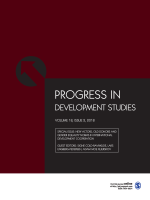 Book2018Lars Engberg-Pedersen, Adam Moe Fejerskov & Signe Marie Cold-Ravnkilde
Book2018Lars Engberg-Pedersen, Adam Moe Fejerskov & Signe Marie Cold-Ravnkilde -
 Book2018Lars Engberg-Pedersen, Adam Moe Fejerskov & Signe Marie Cold-Ravnkilde
Book2018Lars Engberg-Pedersen, Adam Moe Fejerskov & Signe Marie Cold-Ravnkilde -
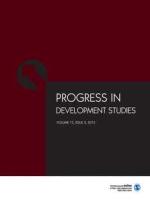 Journal Article2018Introduction to special issue on New Actors, Old Donors and Gender Equality Norms in International Development CooperationSigne Marie Cold-Ravnkilde, Lars Engberg-Pedersen & Adam Moe Fejerskov
Journal Article2018Introduction to special issue on New Actors, Old Donors and Gender Equality Norms in International Development CooperationSigne Marie Cold-Ravnkilde, Lars Engberg-Pedersen & Adam Moe Fejerskov -
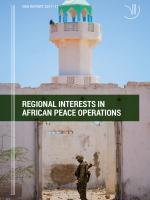 DIIS Report2017Adam Moe Fejerskov, Signe Marie Cold-Ravnkilde & Peter Albrecht
DIIS Report2017Adam Moe Fejerskov, Signe Marie Cold-Ravnkilde & Peter Albrecht -
 Photo/illustration by Pexels. Jens Mahnke. copyright licenseJournal Article2017Signe Marie Cold-Ravnkilde, Peter Albrecht & Rikke Haugegaard
Photo/illustration by Pexels. Jens Mahnke. copyright licenseJournal Article2017Signe Marie Cold-Ravnkilde, Peter Albrecht & Rikke Haugegaard -
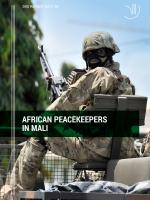 DIIS Report2017Peter Albrecht, Signe Marie Cold-Ravnkilde & Rikke Haugegaard
DIIS Report2017Peter Albrecht, Signe Marie Cold-Ravnkilde & Rikke Haugegaard -
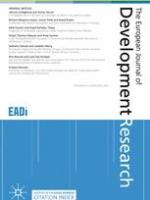 Journal Article2017Adam Moe Fejerskov, Erik Lundsgaarde & Signe Marie Cold-Ravnkilde
Journal Article2017Adam Moe Fejerskov, Erik Lundsgaarde & Signe Marie Cold-Ravnkilde -
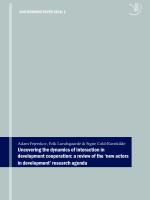 DIIS Working Paper2016a review of the ‘new actors in development’ research agendaAdam Moe Fejerskov, Erik Lundsgaarde & Signe Marie Cold-Ravnkilde
DIIS Working Paper2016a review of the ‘new actors in development’ research agendaAdam Moe Fejerskov, Erik Lundsgaarde & Signe Marie Cold-Ravnkilde -
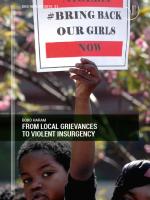 DIIS Report2016From local grievances to violent insurgencySigne Marie Cold-Ravnkilde & Sine Plambech
DIIS Report2016From local grievances to violent insurgencySigne Marie Cold-Ravnkilde & Sine Plambech
-
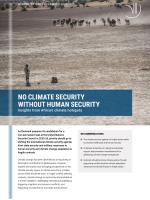 DIIS Policy Brief2022Insights from Africa’s climate hotspotsLouise Wiuff Moe & Signe Marie Cold-Ravnkilde
DIIS Policy Brief2022Insights from Africa’s climate hotspotsLouise Wiuff Moe & Signe Marie Cold-Ravnkilde -
 Photo/illustration by Pexels. Jens Mahnke. copyright license
Photo/illustration by Pexels. Jens Mahnke. copyright license -
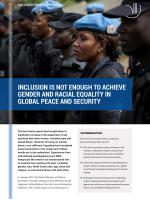 DIIS Policy Brief2021Signe Marie Cold-Ravnkilde, Marsha Henry, Robin May Schott & Nina Wilén
DIIS Policy Brief2021Signe Marie Cold-Ravnkilde, Marsha Henry, Robin May Schott & Nina Wilén -
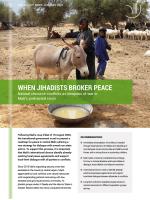 DIIS Policy Brief2021natural resource conflicts as weapons of war in Mali’s protracted crisisBoubacar Ba & Signe Marie Cold-Ravnkilde
DIIS Policy Brief2021natural resource conflicts as weapons of war in Mali’s protracted crisisBoubacar Ba & Signe Marie Cold-Ravnkilde -
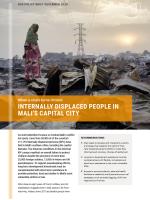 DIIS Policy Brief2020Internally displaced people in Mali's capital cityBoukary Sangaré & Signe Marie Cold-Ravnkilde
DIIS Policy Brief2020Internally displaced people in Mali's capital cityBoukary Sangaré & Signe Marie Cold-Ravnkilde -
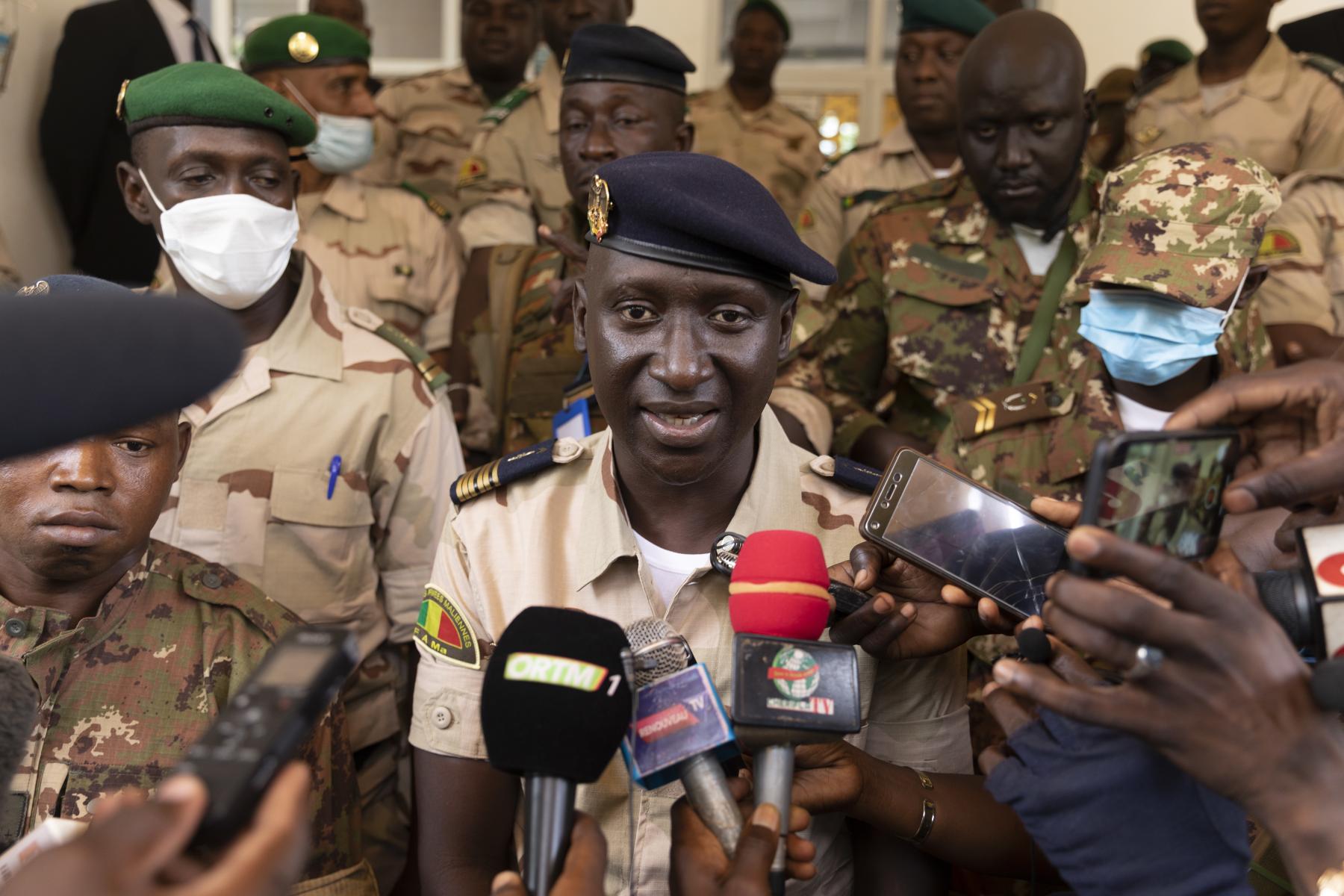 Photo/illustration by Isamil Wague H. Diakite/EPA/Ritzau Scanpix
Photo/illustration by Isamil Wague H. Diakite/EPA/Ritzau Scanpix -
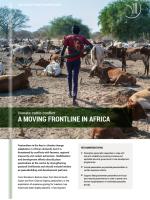 Photo/illustration by Pexels. Jens Mahnke. copyright licenseDIIS policy brief2020climate-cattle-conflictSigne Marie Cold-Ravnkilde & Peer Schouten
Photo/illustration by Pexels. Jens Mahnke. copyright licenseDIIS policy brief2020climate-cattle-conflictSigne Marie Cold-Ravnkilde & Peer Schouten -
 Photo/illustration by Pexels. Jens Mahnke. copyright licenseBrief2019A ‘Traffic Jam’ of Military InterventionsSigne Marie Cold-Ravnkilde
Photo/illustration by Pexels. Jens Mahnke. copyright licenseBrief2019A ‘Traffic Jam’ of Military InterventionsSigne Marie Cold-Ravnkilde -
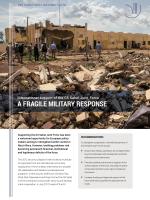 DIIS Policy Brief2018International support of the G5 Sahel Joint ForceSigne Marie Cold-Ravnkilde
DIIS Policy Brief2018International support of the G5 Sahel Joint ForceSigne Marie Cold-Ravnkilde -
 DIIS Policy Brief2018Danish security and defence cooperation in a changing worldSigne Marie Cold-Ravnkilde, Christine Nissen & Adam Moe Fejerskov
DIIS Policy Brief2018Danish security and defence cooperation in a changing worldSigne Marie Cold-Ravnkilde, Christine Nissen & Adam Moe Fejerskov -
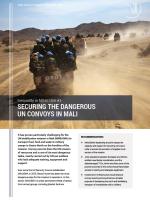 DIIS Policy Brief2017Inequality in MINUSMA #3Signe Marie Cold-Ravnkilde, Peter Albrecht & Rikke Haugegaard
DIIS Policy Brief2017Inequality in MINUSMA #3Signe Marie Cold-Ravnkilde, Peter Albrecht & Rikke Haugegaard -
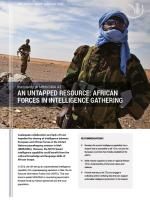 DIIS Policy Brief2017Inequality in MINUSMA #2Peter Albrecht, Signe Marie Cold-Ravnkilde & Rikke Haugegaard
DIIS Policy Brief2017Inequality in MINUSMA #2Peter Albrecht, Signe Marie Cold-Ravnkilde & Rikke Haugegaard -
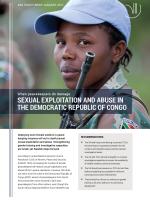 DIIS Policy Brief2017When peacekeepers do damageSigne Marie Cold-Ravnkilde & Thomas Mandrup
DIIS Policy Brief2017When peacekeepers do damageSigne Marie Cold-Ravnkilde & Thomas Mandrup -
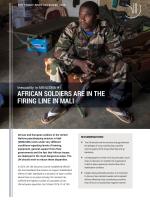 DIIS Policy Brief2016Inequality in MINUSMA #1Peter Albrecht, Signe Marie Cold-Ravnkilde & Rikke Haugegaard
DIIS Policy Brief2016Inequality in MINUSMA #1Peter Albrecht, Signe Marie Cold-Ravnkilde & Rikke Haugegaard -
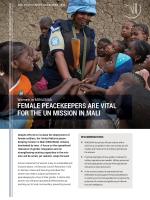 DIIS Policy Brief2016Women in MINUSMASigne Marie Cold-Ravnkilde, Peter Albrecht & Rikke Haugegaard
DIIS Policy Brief2016Women in MINUSMASigne Marie Cold-Ravnkilde, Peter Albrecht & Rikke Haugegaard -
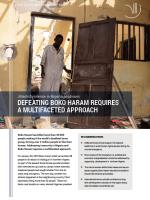 DIIS Policy Brief2016Jihadist violence in Nigeria continuesSine Plambech & Signe Marie Cold-Ravnkilde
DIIS Policy Brief2016Jihadist violence in Nigeria continuesSine Plambech & Signe Marie Cold-Ravnkilde -
 Photo/illustration by Pexels. Jens Mahnke. copyright licenseDIIS Comment2015Both local conflicts and global competition between Al Qaeda and Islamic State undermine security in MaliSigne Marie Cold-Ravnkilde, Lotte Pelckmans & Manni Crone
Photo/illustration by Pexels. Jens Mahnke. copyright licenseDIIS Comment2015Both local conflicts and global competition between Al Qaeda and Islamic State undermine security in MaliSigne Marie Cold-Ravnkilde, Lotte Pelckmans & Manni Crone -
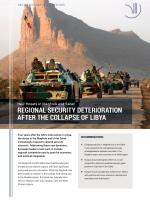 DIIS Policy Brief2015New threats in Maghreb and SahelRasmus Alenius Boserup, Hans Lucht, Signe Marie Cold-Ravnkilde & Luiz Martinez
DIIS Policy Brief2015New threats in Maghreb and SahelRasmus Alenius Boserup, Hans Lucht, Signe Marie Cold-Ravnkilde & Luiz Martinez -
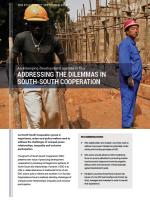 DIIS Policy Brief2015An emerging development agenda in fluxKristoffer Nilaus Tarp & Signe Marie Cold-Ravnkilde
DIIS Policy Brief2015An emerging development agenda in fluxKristoffer Nilaus Tarp & Signe Marie Cold-Ravnkilde -
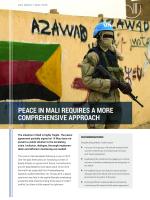 DIIS Impact2015Signe Marie Cold-Ravnkilde & Lotte Pelckmans
DIIS Impact2015Signe Marie Cold-Ravnkilde & Lotte Pelckmans -
DIIS Policy Brief2012Signe Marie Cold-Ravnkilde & Mikkel Funder




